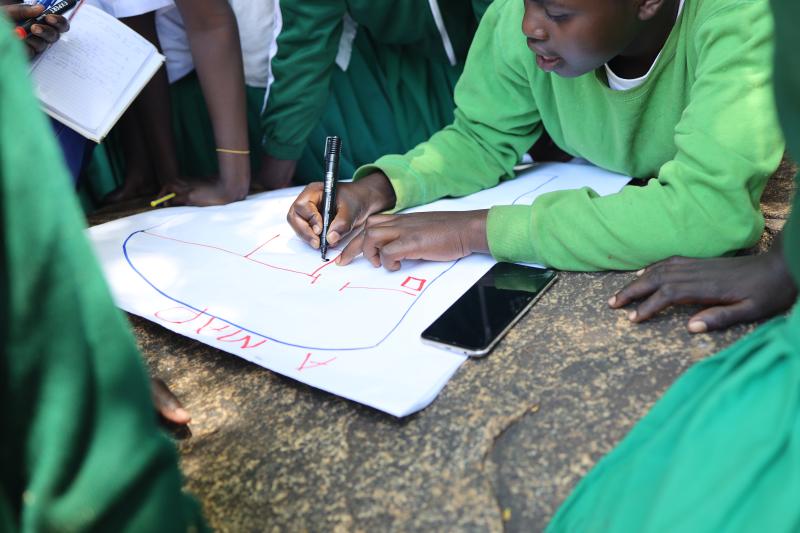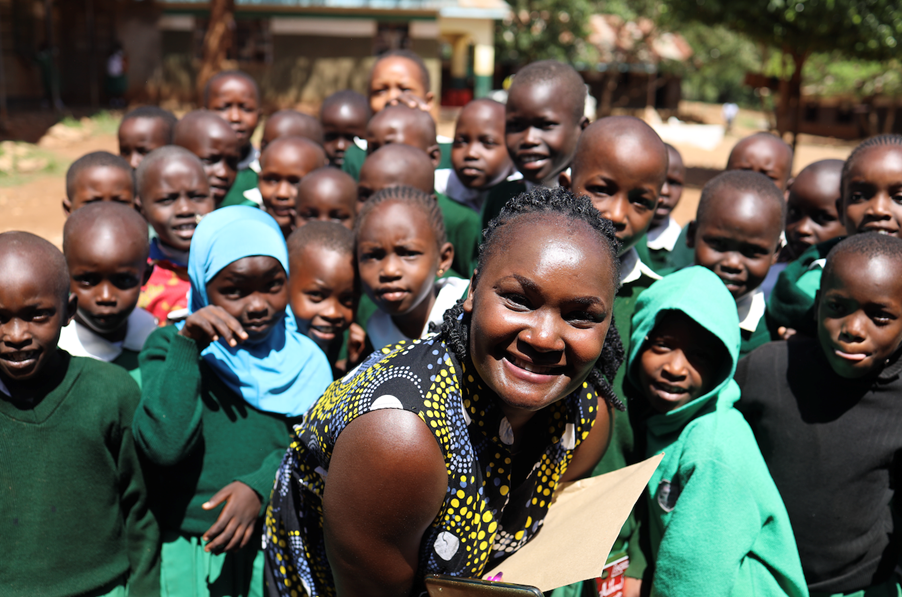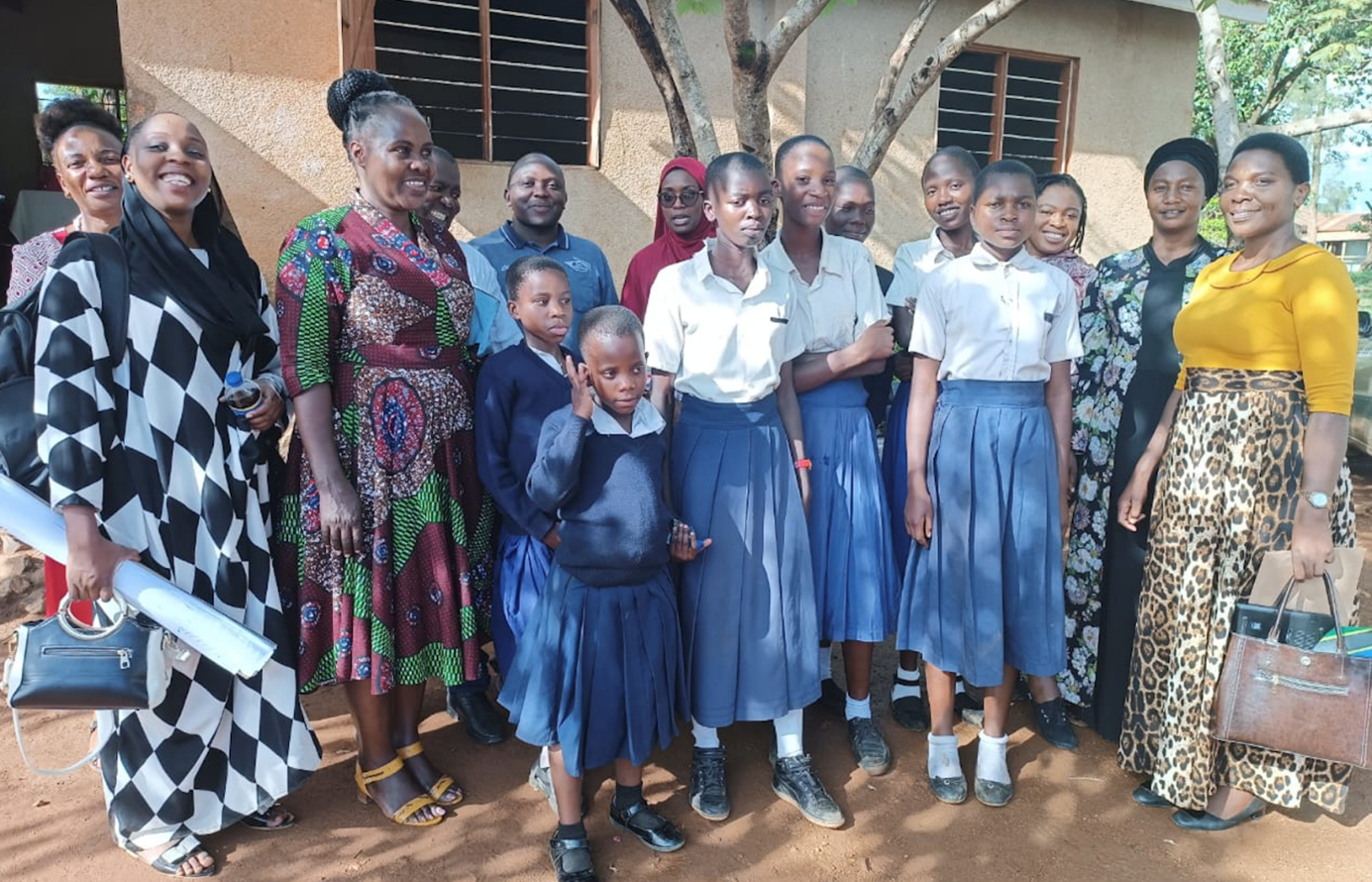
Education is a fundamental and widely recognised human right, yet UNESCO estimates that over 60 million children are missing out on primary education. Behind these staggering numbers lie the untold stories of children whose potential remains untapped, dreams left unfulfilled, and futures clouded by inequality. It is within this context of urgency and opportunity that the Graça Machel Trust (GMT) is working with the Global Partnership for Education Knowledge and Innovation Exchange (KIX), a joint endeavour with Canada’s International Development Research Centre (IDRC) to ensure the right to education translates to tangible, accessible and quality education in Kenya, Tanzania and Ethiopia.
Over the past year, the innovative KIX-funded Back2School research project has achieved remarkable successes and generated compelling evidence to support scaling accelerated education programs, facilitating the re-integration of out-of-school children, particularly girls, into the mainstream education system, and improving education outcomes. However, these research findings have made it apparent that there are key areas in which these programs need adaptation and stronger government intervention.
For example, the curricula for accelerated education programs need to be adapted for shorter durations, and more learner-centred techniques are required. Tanzania is the only country of the three with a national program for accelerated education, and government oversight is weak in all three countries. Community and parental involvement vary, and monitoring and evaluation systems are inadequate. There is a lack of skills pathways into vocational training and insufficient psychosocial support for learners facing challenges. A greater emphasis is needed on linking learners to existing national support programs.
GMT’s Monitoring, Evaluation, Research and Learning (MERL) team recently visited Tanzania and Kenya for routine evidence gathering. They facilitated intergenerational dialogues between girls enrolled in accelerated education programs, teachers, and district officials. They also engaged with the community to help strengthen local partners’ and stakeholders’ capacity to contribute to the monitoring and evaluation of the project’s testing and piloting.
Local partners support scaling the impact of accelerated education programs
Through this visit, the team concluded partnership agreements with Ortum Girls Boarding Primary School located in West Pokot County, Kenya, through the I am Responsible (I-REP) Foundation as a key partner in the project's piloting and capacity-building phase. The school is among many in rural Kenya where the challenges of non-attendance and dropout within both formal schooling and accelerated education programs are acute. However, the school demonstrated remarkable efforts in empowering vulnerable girls and promoting access to education.
I-Rep Foundation works with the community to change attitudes towards harmful cultural practices and promote educational rights for marginalized rural girls. They educate community members on the negative effects of practices like female genital mutilation and child marriages, support girls' access to education, facilitate cooperation among stakeholders, raise awareness about laws and risks, and provide safe spaces for victims of gender-based violence.
Together with these partners, the project continues to use knowledge generated to implement locally-driven innovative solutions. For example, the project conducts advocacy on policy and regulatory frameworks, and capacity development for teachers and other education stakeholders to review curricula and improve pedagogy, outcomes, and monitoring and evaluation practices. The project also facilitates community discussions to improve parental involvement in girls' education, pilots alternative learning pathways for out-of-school girls and helps to enhance gender-sensitive supportive learning environments to address these issues.
The project has proactively created awareness and sensitized district officials, parents, and the community to these issues, and created platforms where they can jointly develop locally suitable ways of identifying and responding to challenges. This will enable the generation of valuable evidence for scaling innovations and using the evidence for improving planning, policy and practice. In an attempt to bridge the gender equity gap, the project has also hosted events where school alumni were welcomed back as role models for other girls in the community during school breaks.
"Parents now understand the role played by the school and the importance of education. For example, when girls return on holidays, "it's a big celebration, and some parents actually shed tears; their children have changed, they are very beautiful, and they can even talk in another language they didn't know before. If we can have more assistance, the number of girls will increase." Head School Teacher- Ortum Girls Primary School
 Credit: Domtila Chesang
Credit: Domtila Chesang
Empowering communities through Complementary Basic Education in Tanzania
In Tanzania, the team explored piloting and testing approaches employed to sensitise communities about the benefits of Complementary Basic Education in Tanzania (COBET). The visit was an opportunity to mobilise the community around the use of insights and evidence from research activities. Local Ministry of Education (MoE) officials witnessed first-hand issues that continue to impact the enrolment, retention and transition of girls into COBET centres. For example, early pregnancies, child marriages, cultural practices such as Female Genital Mutilation (FGM), and economic activities like mining and cattle herding all affect girls’ access to education. The visit also demonstrated the need to review and harmonise the COBET curriculum to facilitate the smooth reintegration of children into mainstream education. It is hoped that the community will use the knowledge they gained during the visit to carry the advocacy torch for issues of educational quality, equity, efficiency and sustainability.
As the district is tackling the issue of out-of-school children by addressing infrastructural challenges in the school environment, the visit reiterated the importance of considering the findings on gender equity, such as by providing hygiene facilities, repairing classrooms to address safety concerns, and supporting menstrual sanitation for girls. Validated by the District Executive Officer, the research continues to uncover valuable evidence and strategies to improve the school environment, such as by addressing voluntary teaching and the need for compensation for teachers and parents, as highlighted in the research findings. This emphasises the essential role they play in creating conducive learning spaces.
 Credit: Nompilo Khanya-Obasi
Credit: Nompilo Khanya-Obasi
12 educators, 29 learners, and 14 parents were part of implementing strategies to improve the COBET learning and teaching environment.
The Ortum Girls Boarding Primary School in Kenya has been instrumental in promoting education access and equity for vulnerable children in the region. Despite challenges, they have worked hard to provide a safe learning environment and create opportunities through innovative approaches and partnerships. The COBET initiative in Tanzania has also significantly impacted education access for out-of-school children.
The KIX-supported GMT project has identified obstacles to education in both countries, including cultural and economic factors. On-site visits emphasized the importance of using high-quality evidence to develop scalable educational solutions for out-of-school girls. School mapping exercises with students provided further insights, which will be published in a synthesis research note in the next reporting phase. As the project is nearing its closure, next steps will focus on testing approaches to increase school enrolment, retention, and transition for children, especially girls. This will include exploring vocational learning, reviewing curriculums, and improving parental involvement to achieve educational equity for all children in the region.
About the Author: Sarah Mpata is a storyteller, social and psychological researcher and journalist. She currently serves as the Senior Communications Officer for the Graça Machel Trust, where she is responsible for creating and disseminating content related to several projects, including the KIX-supported Back2School project. With a cross-disciplinary background, she creates meaningful and impactful stories.
